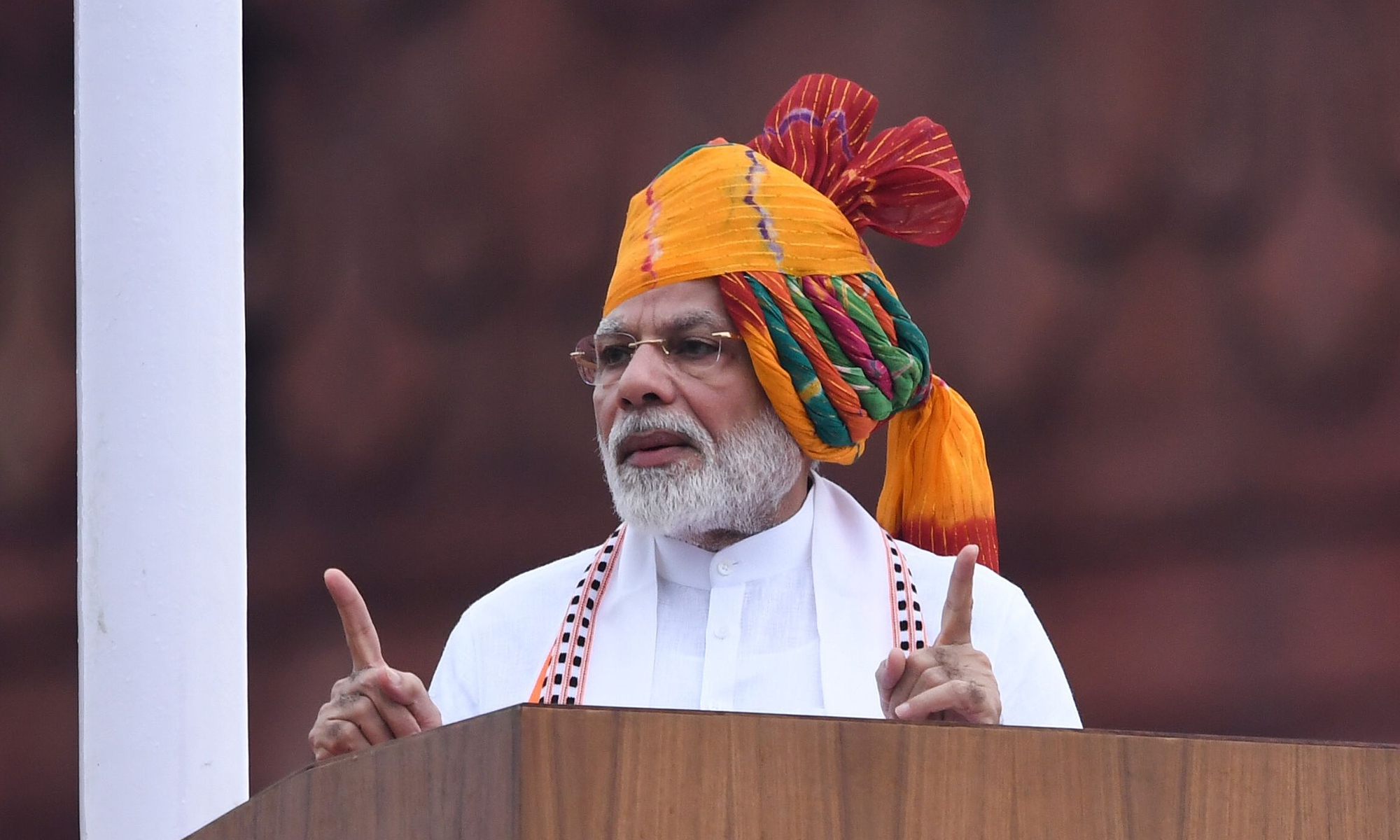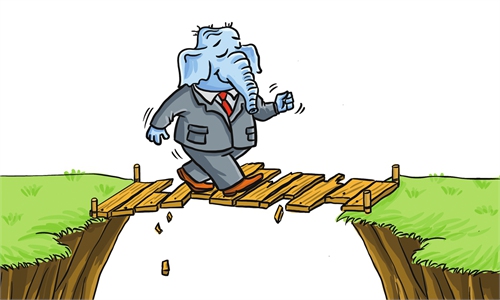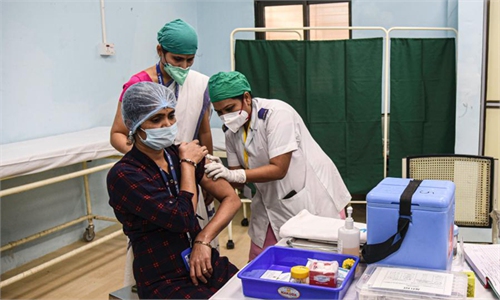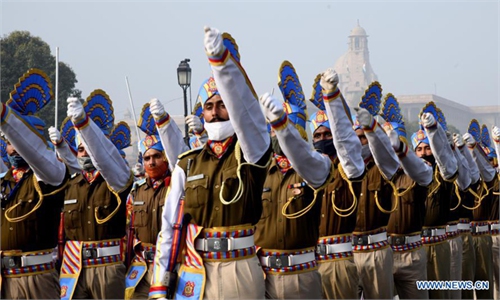
Modi File photo:VCG
Staying with its "neighborhood first" policy, India has chosen the Maldives and Bhutan as the first two countries to be provided with COVID-19 vaccines manufactured in India, the India Today reported on Wednesday.After Indian Prime Minister Narendra Modi took office he announced that neighboring countries in South Asia are the focus of his foreign policy. What he wants to build is a circle of South Asian countries that is friendly and loyal to India. Providing vaccines is a manifestation of this policy.
According to media reports, the vaccines India offered to six countries (Bhutan, Maldives, Bangladesh, Nepal, Myanmar and Seychelles) as a "gift" are manufactured by the Pune-based Serum Institute of India. This is also the manufacturer of the British-developed AstraZeneca vaccine.
Indian Ministry of External Affairs said in a press release, "In respect of Sri Lanka, Afghanistan and Mauritius, we are awaiting their confirmation of necessary regulatory clearances."
Choosing Nepal, Bangladesh, and Sri Lanka among the first batch of countries to receive COVID-19 vaccines shows India's mentality of competition with China. India believes that it has already won over the Maldives, but it still needs to win over Nepal.
In New Delhi's view, Kathmandu has been tilting too much toward Beijing over the past few years. Thus, New Delhi has further intensified its diplomatic moves with Kathmandu.
India's practice is actually consistent. Such an order of vaccine provisions is based on the consideration of India's interests and political influence. If India provides free vaccine, its image in these countries will improve.
Among developing countries, India's production capacity of vaccines is relatively strong. Thus, New Delhi may believe that it has the ability to offer a helping hand to neighbors.
And while India is a major country in South Asia with a political agenda, its vaccine efforts are still worth encouraging given the overall situation of the global COVID-19 fight.
India is the largest producer of various kinds of vaccines worldwide and cooperates with many developed countries on vaccine development. But it won't be an easy task for India to always provide the British-developed vaccines to other countries.
However, there are doubts about the efficacy of India's locally-developed vaccines, because India cannot yet prove solid data about their efficacy or safety as the vaccine is yet to officially complete its phase III trials. Therefore, we can only wait and see the results. It is now difficult to make an objective or completely scientific judgment about India's vaccines.
In addition, although India has production capacities, its vaccine has not been approved of full line production.This shows that India has not obtained enough data to prove that the country has large-scale production abilities for this particular lifesaving vaccine.
This being the case, India is carrying on its path to realize its ambition of becoming a major power. But there are still many obstacles for the country to overcome before it can fulfill Modi's mantra, "Today, India is ready to protect humanity with not one, but two Made in India corona vaccines."
Despite the dream of becoming a leading power on the world stage, since Modi took office India has witnessed a gradual decline of its own international influence. In addition, New Delhi is making more efforts to attach itself to the US' chariot. Under Trump's presidency, India has actively joined the Indo-Pacific Strategy. But with the presidential transition in the US, India has to carefully measure Biden's foreign policies.
Given that the Biden administration's policies will unlikely be as aggressive and radical as Trump's, India will need to adjust itself too. From this perspective, offering a hand to neighbors can be seen as a pre-emptive move on the part of India.
New Delhi is anxious as its global influence goes downhill. Being an appendage to Washington won't help address the diplomatic challenges it faces either.
In particular, if India continues to act hostile against China, it will have to undergo an increasingly unfavorable outside environment. So with Biden sworn in, the Modi administration will probably do something different with its diplomacy.
The author is a research fellow at the Shanghai Institute for International Studies. opinion@globaltimes.com.cn



